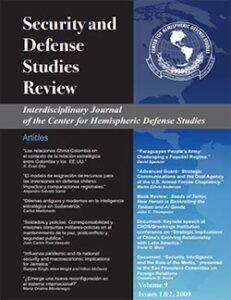In South America, attempts to establish a new institutional framework for intelligence are constantly being made. Probably together with the serious shortcomings of the police forces, the structuring of professional intelligence services is one of the pending issues in the democratic consolidation of security in the region. Most of these organizations are headed by military and police officers, although the number of civilian employees is increasing. Two very different groups of countries can be identified. On the one hand, there are those with old and consolidated organizations, at least in appearance, although not necessarily legitimized (SIDE in Argentina, ABIN in Brazil and DAS in Colombia). On the other hand, there are a number of countries with intelligence services in gestation and in search of legitimacy and professionalism. This is the case of ANI in Chile and DINI in Peru, while the governments of Bolivia, Ecuador and Venezuela are trying to establish, through legislative reforms, completely new intelligence organizations. In any case, the lack of professionalism, the use of bad practices -- often through the political use of the services, and, in some cases, the low level of efficiency and success, as well as the persistence of internal struggles for power, influence and resources among civilians, military and police -- persist.

